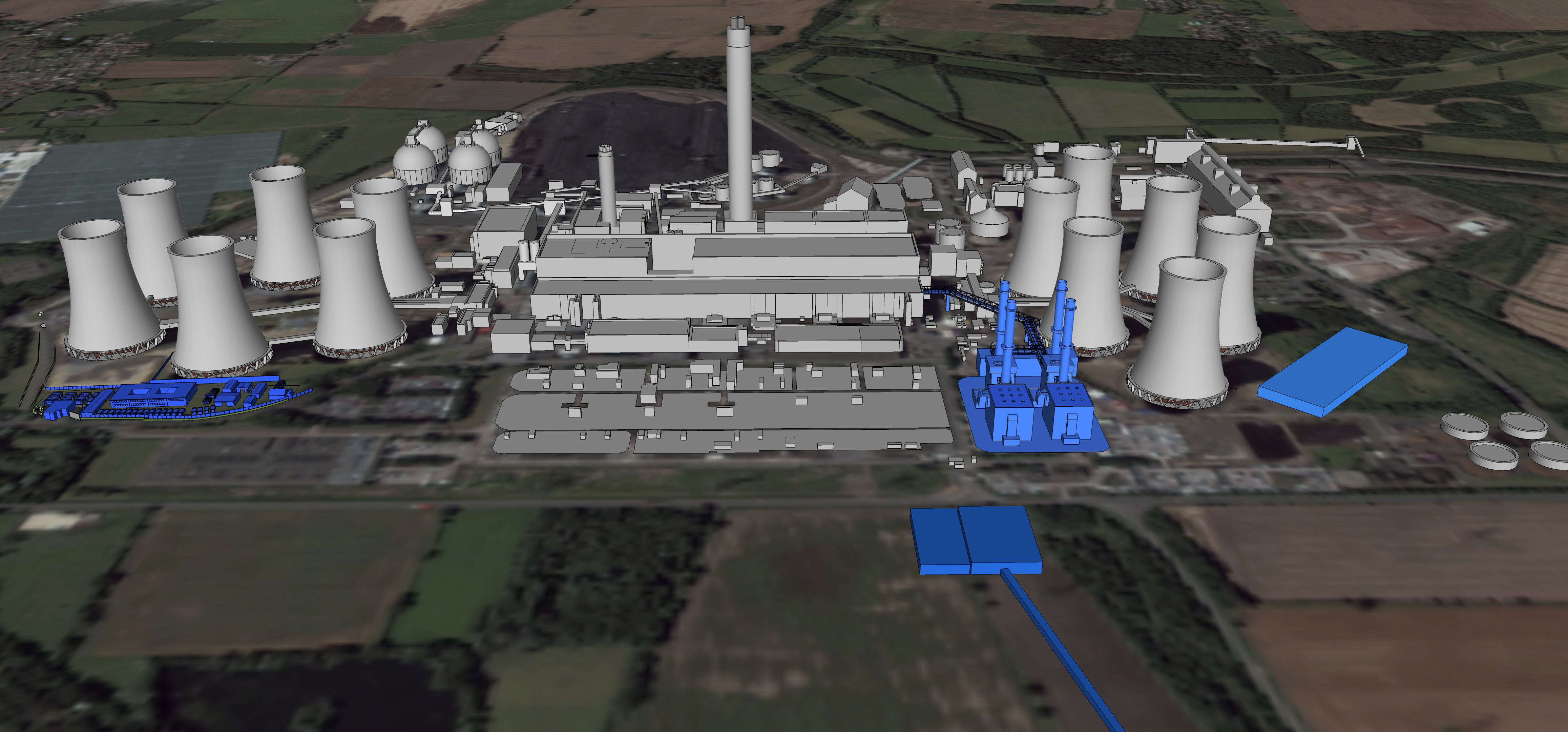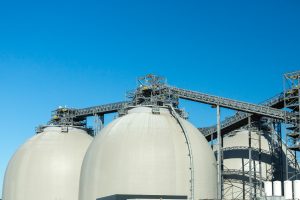
Drax today gave notice to the Planning Inspectorate of its intention to consult on long-term options to repower up to two coal units to gas, and build battery storage at Drax Power Station.
Plans for gas on site were announced in June and are part of an ongoing research and development project. The options could create up to 3.6GW of new gas generation capacity and 200MW of battery storage. They are subject to a positive investment decision and would need to be underpinned by a 15-year capacity market contract. The upgrade would enhance Drax Power Station’s flexible and responsive capability, and make Yorkshire the home of large scale battery technology. At this early stage in the planning process these figures represent the maximum parameters of the project.
These options would, if developed, increase Drax’s ability to provide the flexible generation and grid support services Britain’s electricity system will need as coal and other large power stations are turned off.
Today’s notice to the Planning Inspectorate is a step in developing these options as part of Drax’s strategy to play a vital role in changing the way energy is generated as the UK moves to a low carbon future.
The options complement Drax’s ongoing work to explore converting a fourth unit to sustainable biomass. Three units have already been successfully upgraded, on-time and on-budget. They account for 70% of the electricity Drax produces – enough to power Leeds, Manchester, Sheffield and Liverpool and 16% of the UK’s total renewable power.
Drax expects to begin consulting on these options with local communities and national stakeholders over the coming weeks.
Andy Koss, CEO of Drax Power, said:
“We are at the start of the planning process but if developed these options for gas and battery storage show how Drax could upgrade our existing infrastructure to provide capacity, stability and essential grid services, as we do with biomass. This would continue to keep costs low for consumers and help to deliver Government’s commitment to remove coal from the UK grid.
“Drax Power Station is a national asset and a significant driver of economic growth in the North of England. These options could repurpose up to two of our coal assets and extend their operation into the 2030s. We have always supported and worked with our local communities and want to ensure they have a role in shaping our thinking. We will undertake a comprehensive programme of local consultation and engagement over the coming months to share our options with the public and listen to their views.”
– Ends –
Media contacts:
Ali Lewis
Head of News
Drax Group
01757 612165
[email protected]
Jessica Gorton
Press Officer
Drax Group
07712 677177
[email protected]
Notes to editors
About the ‘Drax Repower’ project
The project encompasses the following elements:
- The repowering of either one or both of Drax units 5 and 6, which are currently coal fired, to gas using two new gas turbines, a heat recovery steam generator (HRSG) and cooling systems. The capacity of each gas unit would be up to 1,800 MW, with a combined maximum possible capacity of 3,600 MW.
- A battery storage facility of up to 200 MW capacity.
- A new gas connection, entering the eastern side of the existing station.
- An electrical connection into the 400 kV substation from the repowered unit(s) would allow for electricity to be distributed into the National Grid.
Further information about the project, consultation and planning application will be published in the coming months on this page.
About the planning regime
The proposed development is a nationally significant infrastructure project (NSIP) under “the construction or extension of a generating station” category in Part 3 Sections 14(1)(a) and 15(2) of the Planning Act 2008 (as amended). As such, Drax is required to seek planning permission known as a Development Consent Order (DCO) from the Planning Inspectorate: an executive agency of the government that manages nationally significant infrastructure projects.
About Drax Group
Drax Group plc plays a vital role in helping change the way energy is generated, supplied and used as the UK moves to a low carbon future. Drax operates the largest power station in the UK, based at Selby, North Yorkshire and supplies 7 percent of the country’s electricity needs. The energy firm converted from burning coal to become a predominantly biomass-fuelled electricity generator. Drax is the biggest single site renewable generator in the UK and the largest decarbonisation project in Europe. Its 2,300-strong staff operate across three principal areas of activity – electricity generation, electricity sales to business customers and compressed wood pellet production.
The Group includes:
Drax Biomass, based in the US and manufactures compressed wood pellets produced from sustainably managed working forests.
Haven Power, based in Ipswich, providing businesses with electricity.
Opus Energy, based in Oxford, Northampton and Cardiff, providing electricity and gas to businesses.
For more information visit www.drax.com/uk








